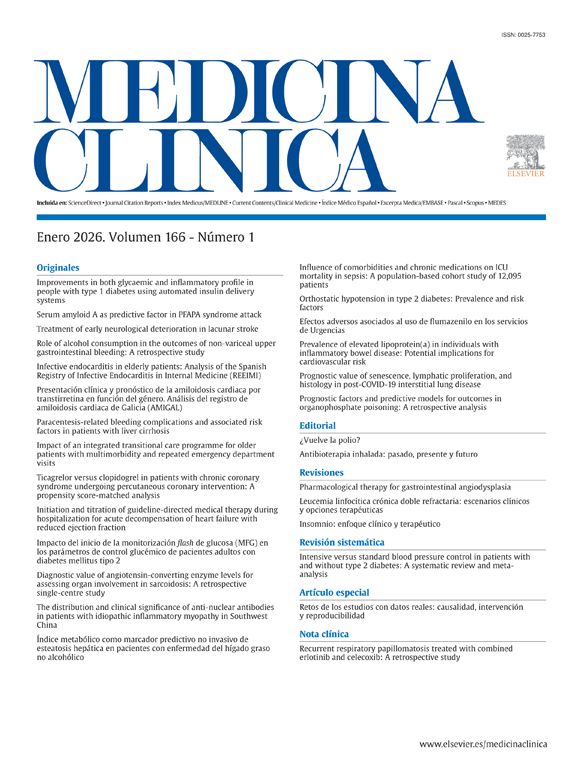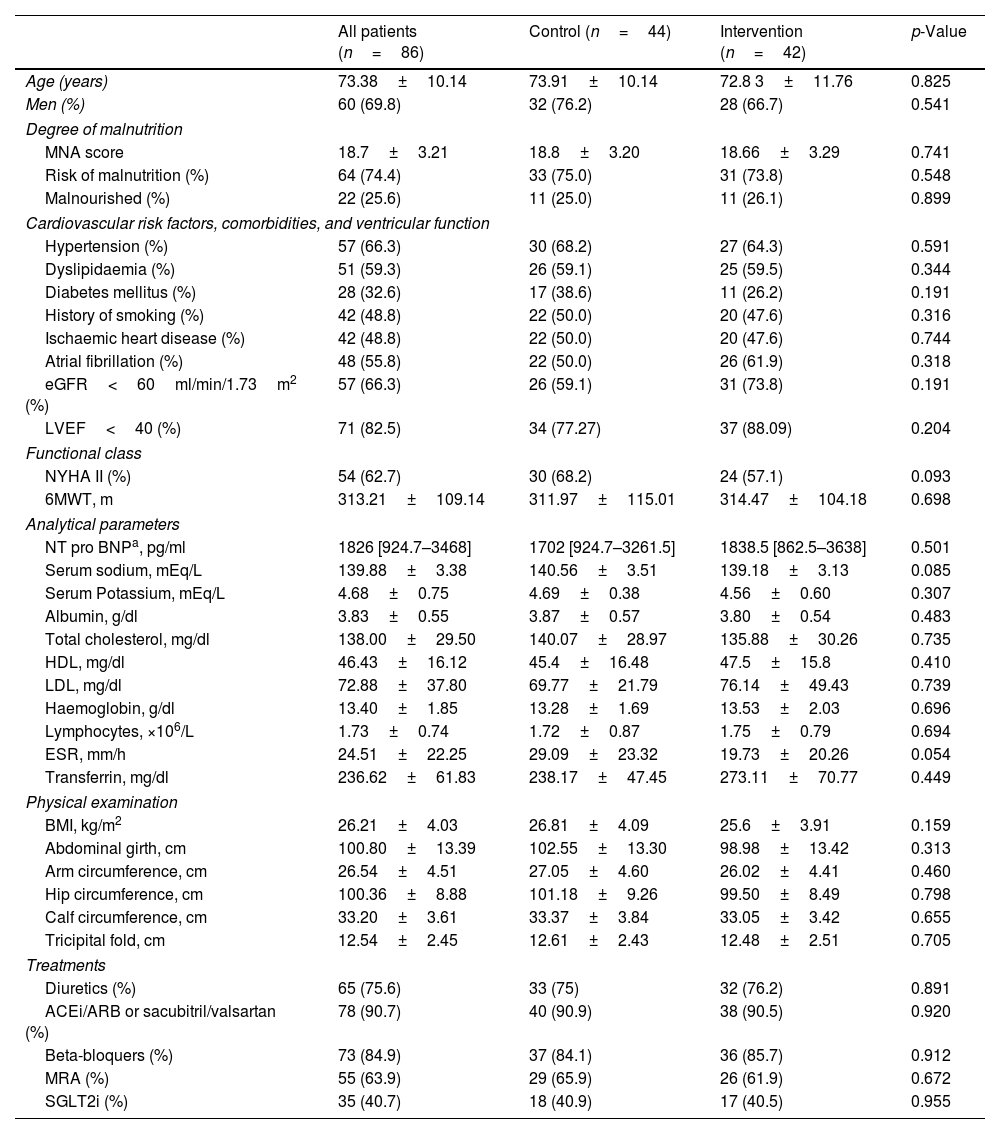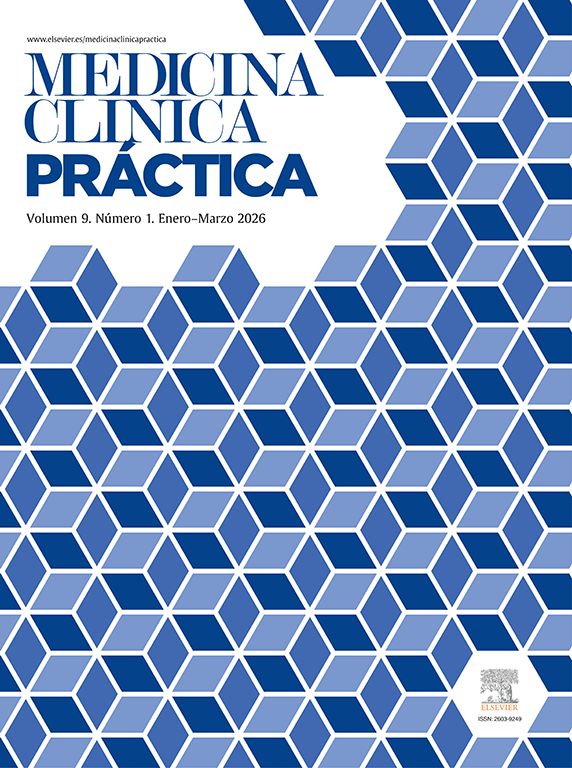Malnutrition is common in patients with heart failure (HF) and is associated with poor prognosis. We evaluated the prognostic and clinical impact of a nutritional intervention in malnourished patients with chronic HF.
MethodsA randomized controlled clinical trial was carried out in patients with chronic HF who were malnourished or at risk. Participants were randomized to receive an individualized nutritional intervention or conventional management. The primary endpoint was a composite of all-cause mortality or time-to-first HF hospitalizations at the 12-month follow-up. The secondary endpoints were changes in nutritional status and functional capacity.
ResultsWe screened 225 patients, 86 of whom had some degree of malnutrition and were randomized. At 12 months, the primary outcome occurred in 10 patients (23.8%) in the intervention group and in 22 patients (50.0%) in the control group (HR=0.39; 95% CI, 0.19–0.83). This effect was mainly related to a lower risk of hospitalization for HF in the intervention group: 8 patients (19.0%) versus 18 patients (40.9%) in the control group (HR=0.39; 95% CI=0.17–0.89). We observed an improvement in nutritional status and functional capacity in the intervention group versus the control group.
ConclusionsIn patients with chronic HF and some degree of malnutrition, individualized nutritional intervention may reduce the risk of all-cause mortality or HF hospitalisations and improve nutritional status and functional capacity. These results underline the need for further randomized controlled trials with this approach to confirm the potential prognostic benefit.
La desnutrición es frecuente en pacientes con insuficiencia cardiaca (IC) y asocia mal pronóstico. Evaluamos el impacto pronóstico y clínico de una intervención nutricional en pacientes desnutridos con IC crónica.
MétodosSe realizó un ensayo clínico controlado y aleatorizado en pacientes con IC crónica desnutridos o en riesgo. Los participantes fueron aleatorizados a recibir una intervención nutricional individualizada o a tratamiento convencional. El objetivo primario fue el combinado de mortalidad por todas las causas o el tiempo hasta la primera hospitalización por IC a los 12 meses. Los objetivos secundarios fueron los cambios en el estado nutricional y la capacidad funcional.
ResultadosSe analizaron 225 pacientes, 86 de los cuales presentaban algún grado de desnutrición y fueron aleatorizados. A los 12 meses, el objetivo primario ocurrió en 10 pacientes (23,8%) del grupo de intervención y en 22 pacientes (50,0%) del grupo control (HR=0,39; IC 95%, 0,19-0,83). Este efecto estuvo relacionado principalmente con un menor riesgo de hospitalización por IC en el grupo intervención: 8 pacientes (19,0%) frente a 18 pacientes (40,9%) en el grupo control (HR=0,39; IC 95%=0,17-0,89). Se observó una mejora del estado nutricional y de la capacidad funcional en el grupo intervención comparado con el grupo control.
ConclusionesEn pacientes con IC crónica y algún grado de desnutrición, una intervención nutricional individualizada puede reducir el riesgo de mortalidad por cualquier causa o de hospitalizaciones por IC y mejorar el estado nutricional y la capacidad funcional. Estos resultados subrayan la necesidad de realizar más ensayos controlados aleatorizados con este enfoque para confirmar el posible beneficio pronóstico.












